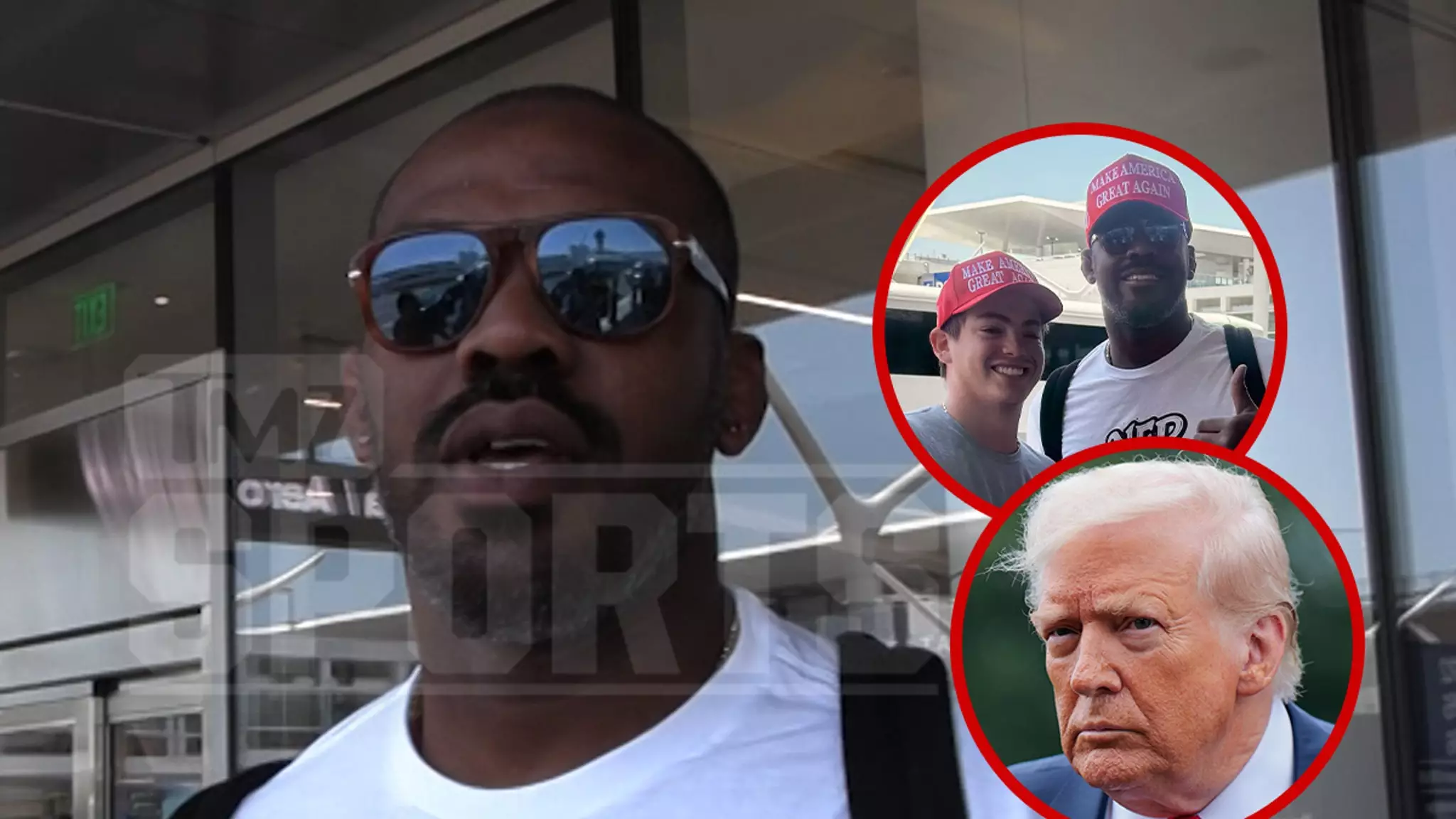Jon Jones, one of mixed martial arts’ most iconic figures, exudes a remarkable sense of certainty about his participation in an upcoming UFC event hosted at the White House—a spectacle that promises to be etched into history. His unwavering confidence is rooted in a belief that he will be on the card, despite the absence of an official date or finalized logistics. This bold outlook reflects not only Jones’ personal ambitions but also highlights his deep-rooted affinity for former President Donald Trump, which continues to influence his perception of this unique opportunity.
Jones’s outspoken enthusiasm reveals more than just a desire to compete; it underscores his willingness to align himself with a platform that resonates with his personal political convictions. His admiration for Trump isn’t merely superficial—it’s demonstrated through gestures like exchanging an autograph for a MAGA hat, symbolizing a connection rooted in shared values. This loyalty, coupled with his professional aspirations, positions Jones as a central figure in what could become one of the most politically charged and culturally significant UFC events to date.
The Uncertain Road to a Historic Event
While Jones’s optimism is palpable, the path to this anticipated fight remains uncertain. UFC president Dana White has indicated that discussions with President Trump are ongoing, with plans to finalize the event’s logistics in the near future. The potential for a July 4, 2026, showdown at the White House appears to be in White’s sights—a date that not only symbolizes American patriotism but also promises to elevate the UFC’s profile to unprecedented heights.
Despite the lack of concrete details, Jones’s assertion that he “has a very strong feeling” he’ll be involved underscores a profound self-assurance that borders on conviction. It’s a demonstration of how much the event means to him—more than just a fight, it’s a historic milestone that merges sports, politics, and culture. The fighters’ personal motivations, coupled with the event’s symbolic significance, could set the stage for a groundbreaking moment in sports history.
Mixed Reactions and Future Possibilities
The potential fight has generated buzz among other fighters as well. Khalil Rountree, another UFC fighter, highlighted the unique environment of fighting outdoors in the shadows of the White House—though he noted the importance of compensation and conditions for him to participate in such an unconventional setting. His comments reflect a mix of curiosity and practicality, emphasizing that while the event is alluring, it must also meet financial and logistical expectations.
Jones’s determination suggests he views this as a defining chapter in his career—possibly his first and last appearance at such a storied venue, especially since he retired earlier this year. Yet, as he candidly admitted, the future remains unpredictable. This openness adds a layer of intrigue; even with unwavering confidence, the actual realization of the event depends on complex negotiations and unforeseen circumstances.
As discussions continue and plans evolve, the prospect of witnessing UFC history being made at the White House remains tantalizingly close. Whether Jones participates or not, the event signifies a bold intersection of sport, politics, and celebrity—an intersection where passion, loyalty, and a desire for legacy collide with the realities of logistics and planning.

